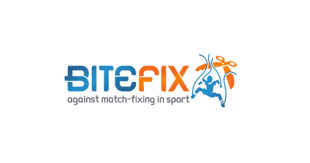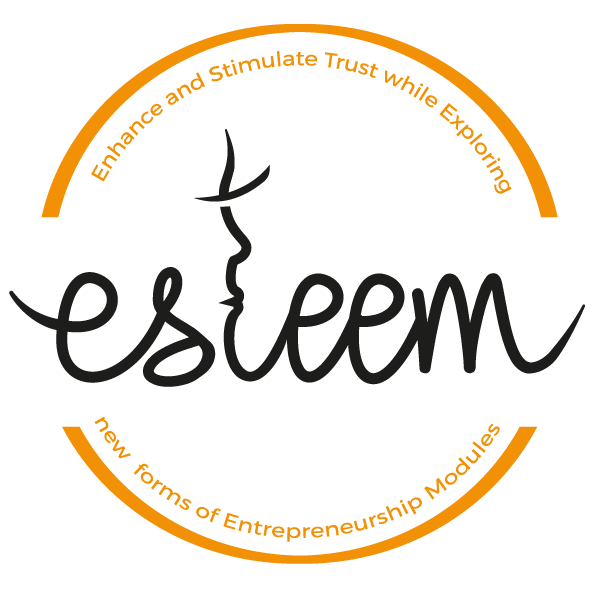Monitorização das ações e meios de campanha (Autárquicas 2025)
Investigador Responsável
A Entidade das Contas e Financiamentos Políticos (ECFP), do Tribunal Constitucional atribui ao CEI-Iscte a realização de estudos de evidência feitos por grupos de monitores em municípios de referência, com o objetivo de validar os gastos de campanha dos partidos políticos, comparar esses gastos com os orçamentos apresentados à ECFP, e eventualmente realçar indicadores de desfasamentos entre os orçamentos e os atos de campanha levados à prática pelas diferentes candidaturas durante a campanha das eleições autárquicas do ano 2025. O projeto tem como vertente científica, nomeadamente, o estudo do tipo e evolução dos meios e ações de campanha nas eleições autárquicas e serve também o propósito de avaliar esses meios e ações de campanha.
Informação do Projeto
2025-09-23
2025-12-31
Parceiros do Projeto
G-risks - “Gamblification” of sport and new generations: tendences, addictions, social harms, and risks for integrity of sports.
Investigador Responsável
Nos últimos anos, tem-se verificado uma influência crescente da indústria do jogo no mundo do desporto e da cultura desportiva, que a literatura tem descrito como a “gamblificação do desporto”. As casas de apostas dominam o patrocínio no sector desportivo, os Estados aumentaram a sua dependência das receitas fiscais provenientes do jogo e a publicidade às apostas desportivas ocupa cada vez mais tempo de antena na televisão e na rádio. Por conseguinte, as apostas desportivas estão cada vez mais normalizadas na sociedade. Embora a liberalização do jogo seja uma inevitabilidade (dada a facilidade de acesso aos mercados ilegais), a ausência de regulamentação que estabeleça restrições ao patrocínio no ecossistema desportivo e à publicidade às apostas desportivas em vários países, como Portugal, tem vindo a expor grupos de risco à dependência.
O objetivo desta investigação e o seu carácter inovador é, precisamente, avaliar em que medida a “gamblificação do desporto” tem vindo a alterar o consumo e o interesse por eventos desportivos nos jovens e atletas em Portugal, e que tipo de riscos isso representa para a sociedade e para a integridade do desporto.
Informação do Projeto
2025-02-01
2026-08-31
Parceiros do Projeto
Supporting Esports players towards an active and healthy lifestyle
Investigador
A expansão dos desportos electrónicos resultará no desenvolvimento de uma grande parte da população, especialmente crianças, adolescentes e jovens adultos, que passarão grande parte do seu tempo de lazer a jogar ou a ver desportos electrónicos e a abster-se de atividade física. É imperativo compreender melhor este fenómeno e prevenir os riscos negativos para a saúde que lhe estão associados, antes que se torne um problema para as sociedades europeias. Os dados existentes (ver a secção Análise das necessidades para informações mais detalhadas) indicam que os jogadores de Esports adoptam um estilo de vida sedentário, passando muitas horas do dia a jogar Esports. Além disso, os jogos de vídeo não activos e o aumento do tempo de ecrã têm sido associados a um aumento do Índice de Massa Corporal (IMC), o que resulta em níveis mais elevados de obesidade e em comportamentos de estilo de vida pouco saudáveis. Além disso, há provas anedóticas que indicam que os jogadores de Esports são sedentários durante 4,2 horas por dia enquanto treinam e, devido ao seu estilo de vida sedentário, existe um elevado risco de lesões e doenças crónicas.
O projeto envolve a compreensão da atividade física e dos comportamentos relacionados com a saúde dos jogadores de Esports. Prevê o desenvolvimento de material de sensibilização e de recomendações políticas que facilitarão às autoridades desportivas e desportivas a promoção da atividade física e de estilos de vida saudáveis numa população de jovens em risco de sedentarismo, obesidade e consumo de drogas.
Informação do Projeto
2024-12-01
2026-11-30
Parceiros do Projeto
- CEI-Iscte
- Esports Research Network - (Alemanha)
- UNIVERSITY LEIPZIG - (Alemanha)
- BESF - (Bélgica)
- (KEA Fair Play (Greece) - Líder (Grécia)
European Joint Master Degree on Education and Employability for Esports Industry
Investigador
A proposta do EMJMD Esports tem como objetivo conceber o primeiro EMJMD sobre as competências e aptidões necessárias para a indústria dos Esports. A indústria dos Desportos Electrónicos continua a florescer e a crescer (cultural e economicamente), criando um ambiente dinâmico que atrai novas gerações e cria muitos empregos de diferentes tipos. Precisamente, os Esports são uma indústria em crescimento que responde às tendências actuais do estilo de vida dos jovens. No entanto, há falta de profissionais formados no desenvolvimento, promoção e implementação de actividades desportivas, bem como na interação com os jogadores de Esports. É importante referir que, a nível europeu, não existe um diploma de licenciatura que prepare profissionais para a indústria dos desportos electrónicos. Esta situação deve-se, em parte, à natureza complexa dos Desportos Electrónicos; no entanto, esta é uma indústria em crescimento que tem sido dominada por profissionais sem formação sobre os Desportos Electrónicos, as suas particularidades e condições especiais. Para colmatar esta lacuna, esta candidatura procura desenvolver um currículo de mestrado abrangente, holístico e multidisciplinar, que qualificará os estudantes com as competências necessárias para entrar com sucesso no mercado de trabalho da indústria dos desportos electrónicos.
Informação do Projeto
2023-10-01
2024-12-31
Parceiros do Projeto
- CEI-Iscte
- Aristotle University of Thessaloniki - Líder (Grécia)
- Universidade de Leipzig - (Alemanha)
Monitorização das Ações e Meios de Campanha Eleitoral utilizados pelos Partidos Políticos e Coligações Eleitorais para a Entidade das Contas e Financiamentos Políticos
Investigador Responsável
Informação do Projeto
2022-01-14
2022-03-31
Parceiros do Projeto
Building innovative tools for the exchange of information and awareness raising against match-fixing on sport
Investigador
Although match-fixing and betting-fraud are fast moving international crimes, deeply infiltrated in the sports universe, they still face an anachronic lack of coherent, systematic and articulated response from sports, governments or society at large. Heterogeneous legal frameworks, reluctancy or even rejection to adopt enforcement measures, difficulties in assessing what should be the right approach and lack of thoughtful and efficient cooperation, all favour the continuous and infamous success and profit for organized crime in recent years.
Match-fixing, in fact manipulating the results of matches and contests around the world for the purpose of betting-fraud, is more prevalent today than ever, but in a direct relationship to the increasing prevalence of on-line internationally available gambling on it, and to the clear and virtually unchecked vulnerability of gambling to criminal control and fraud or the lack of adequate and timely mechanisms for information exchange.
As identified by several authors, widespread match-fixing occurs in great measure due to the lack of information and awareness of the athletes and/or of adequate and efficient capacity building programs of sport organisations and/or the lack of proper interexchange of information among the key-actors to enable them to counter criminal infiltration.
In this framework, BITEFIX project aims to develop and provide innovative and practical tools to enable committed stakeholders (law enforcement authorities, betting regulators and operators, government agencies and sport governing bodies, mainly) to work together against match-fixing and betting-fraud in sports throught the exchange of timely, secure and reliable information and raise awareness about the importance of safeguarding the integrity of sport and of its irreplaceable role in European society, with a special focus on grassroots sports.
Informação do Projeto
2021-01-01
2023-06-30
Parceiros do Projeto
- CEI-Iscte
- ICSS - Save the dream - Coordenador (Reino Unido)
Enhance and Stimulate Trust while Exploring new form of Entrepreneurship Modules
Investigador
Este projecto tem como objetivo estimular a confiança e promover o empreededorismo feminino, ao explorar e desenvolver novos módulos de empreendedorismo incidindo sobre as principais características do perfil de um empreendedor.
Estágio de Investigação em Estudos Internacionais
Investigador
Curso de formação superior com módulos teóricos e metodológicos comuns, ao longo de 20 horas de contacto onde os estudantes são introduzidos à dinâmica de funcionamento de uma unidade de investigação e ao processo de investigação académica, com aplicações à área científica dos Estudos Internacionais. Programa individual de investigação e de trabalho prático com o acompanhamento de um investigador responsável.
Informação do Projeto
2020-07-28
2020-10-28
Parceiros do Projeto
SKILLS by SPORT 4 MED: Sport as a vehicle for developing skills for the labor market and promoting employability and entrepreneurship
Coordenador Local
The project aims at promoting in a strategic way social transformation through sport in the Mediterranean region, by focusing on sport as a vehicle for promoting work capacities and employment/entrpreneurship. This objective goes in line with the main priorities of EU policies, not only in the frame of sport, but also in integration, immigration, development, security and international cooperation. In this sense Sport in this project is not and end but a “mean” (a tool) for addressing the social and economic problem of low employment, and hence massive migration processes, insecurity and terrorism threats.
The key need addressed by this project is the high unemployment rate in the Mediterranean Basin (both North and South Coasts), which can be efficiently addressed only through a long term oriented strategy aimed at strengthening the labour force capacity, including entrepreneurship. A second key need which the project addresses is the growing need of “empowering sport” as a tool for social impact-change, i.e. empowering sport as a means and no longer considering it only as a scope in itself. A third key need is promoting a cooperative and trustful environment between South Coast and North Coast in the Mediterranean Basin. The planned event in Egypt has the potential to become a little mile-stone in the cooperation dynamics.
The high reputation of the Consortium including United Nations ILO ensures a high-impact perspective to the initiative.
Informação do Projeto
2020-01-02
2023-04-16
Parceiros do Projeto
- CEI-Iscte
- UCSC - ASAG - (Itália)
- Treinadores de Portugal - (Portugal)
- ICSS - Save the dream - (Reino Unido)
- HAŠK Mladost - (Croácia)
- IOTC - (Grécia)
- UIB - (Espanha)
- CSO - (Chipre)
- OKKAM - (Itália)
Monitorização das Ações e Meios de Campanha Eleitoral Utilizados pelos Partidos Políticos e Coligações Eleitorais, para a Entidade das Contas e Financiamentos Políticos
Investigador Responsável
Projecto de aquisição de serviços para monitorização das ações e meios de campanha eleitoral utilizados pelos Partidos Políticos e Coligações Eleitorais na Eleição para a Assembleia Legislativa da Região Autónoma da Madeira, realizada no dia 22 de setembro de 2019 e na Eleição para a Assembleia da República de 6 de outubro de 2019.
Informação do Projeto
2019-09-02
2019-12-31
Parceiros do Projeto
Training to Protected Reporting from Professional and Grassroots Sports
Coordenador Global
O objectivo deste projecto é fortalecer significativamente a eficiência das políticas que estão implementadas contra a combinação de resultados desportivos através do investimento no treino/partilha de informação no meio. O projecto é fortemente baseado na cooperação entre vários actores relevantes com referência específica a dois Governos Nacionais assim como dois Comités Olímpicos Nacionais, que, pela primeira vez, estão envolvidos numa cooperação dentro desta temática.
Informação do Projeto
2018-01-01
2020-06-30
Parceiros do Projeto
- CEI-Iscte - Líder
- UCSC - ASAG - (Itália)
- UAM - (Espanha)
- TI-Slovenia - (Eslovénia)
- CONI - (Itália)
- COP - (Portugal)
- IPDJ - PNED - (Portugal)
- IBIA - (Reino Unido)
- EASG - (Países Baixos (Holanda))
- USPC - (Itália)
- LINC - (Países Baixos (Holanda))
Ação de monitorização de meios e ações de campanha para as Eleições Autárquicas de 1 de outubro de 2017
Investigador
A Entidade das Contas e Financiamentos Políticos (ECFP), do Tribunal Constitucional atribui ao CEI-IUL a realização de estudos de evidência feitos por grupos de monitores em municípios de referência, com o objetivo de validar os gastos de campanha dos partidos políticos, comparar esses gastos com os orçamentos apresentados à ECFP, e eventualmente realçar indicadores de desfasamentos entre os orçamentos e os atos de campanha levados à prática pelas diferentes candidaturas durante a campanha das eleições autárquicas do ano 2017. O projeto tem como vertente científica, nomeadamente, o estudo do tipo e evolução dos meios e ações de campanha nas eleições autárquicas e serve também o propósito de avaliar esses meios e ações de campanha.
Informação do Projeto
2017-09-01
2017-12-29
Parceiros do Projeto
Informação do Projeto
2016-01-08
2016-02-12
Parceiros do Projeto
- CIES-Iscte - Líder
Social accomplices of corruptions: Understanding social tolerance to corruption in Iberoamerican states
Bolseiro Pós-Doc
Informação do Projeto
2015-09-01
2018-10-31
Parceiros do Projeto
Ações e meios de campanha eleitoral para a eleição dos órgãos das autarquias locais
Coordenador Global
Informação do Projeto
2013-08-07
2014-01-31
Parceiros do Projeto
- CIES-Iscte - Líder
Staying on Side: How to Stop Match Fixing
Coordenador Local
Informação do Projeto
2013-01-01
2014-06-30
Parceiros do Projeto
- CIES-Iscte
- TI-S - Líder (Alemanha)
- TI - (Itália)
- TI-Deutschland - (Alemanha)
- Transparency International Greece - (Grécia)
- TI Lithuania - (Lituânia)
Promessas Partidárias e Responsabilidade Democrática: O caso português numa perspectiva comparativa
Investigador
Informação do Projeto
2011-03-01
2014-08-31
Parceiros do Projeto
- CIES-Iscte - Líder
The Democratization of Corruption: how the phenomenon adapts from authoritarian to democratic contexts
Investigador
The main objective of this study is to understand the phenomenon of corruption in different political regimes and determine how the opportunity structures have changed and adapted from authoritarian to democratic contexts. Some forms of corruption are of a structural nature and invariable with regard to the type of regime, whereas others have emerged and expanded as a consequence of democratization and the inevitable growth and complexity of state intervention. The study focus on the Argentinean, Portuguese and Spanish cases and tries to develop a general framework of analysis on how corruption actors, resources and exchanges evolve in response to changes in the nature of the regime. In order to understand the role of corruption in the daily life of people across regimes, the study looks at the major contextual social, economic, institutional and normative changes and how these affect the interaction between citizens and their political and administrative institutions.
Informação do Projeto
2010-10-01
2016-09-30
Parceiros do Projeto
- CIES-Iscte - Líder

 English
English







